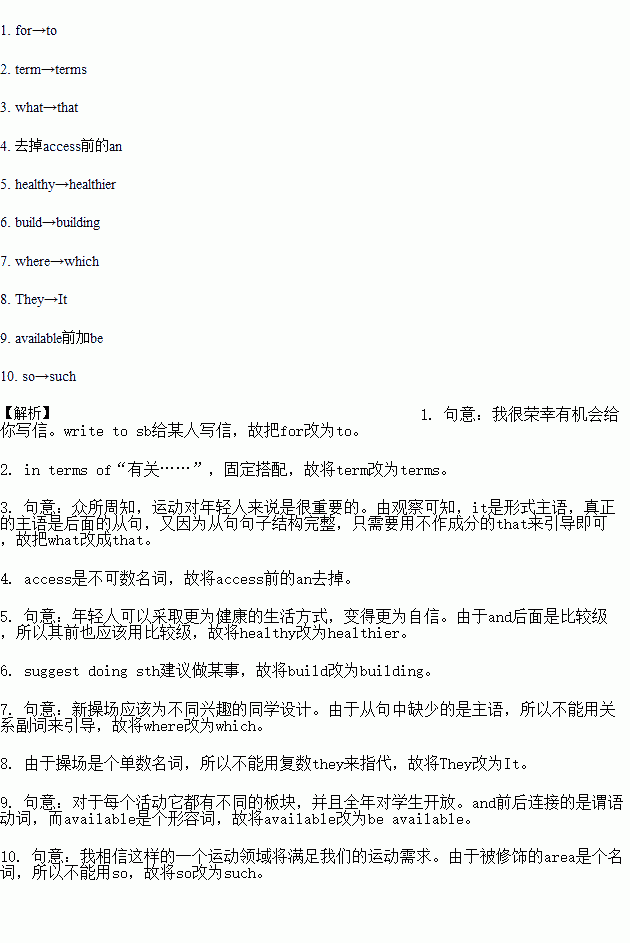ΧβΡΩΡΎ»ί
ΦΌΕ®”Δ”οΩΈ…œάœ Π“Σ«σΆ§Ήά÷°ΦδΫΜΜΜ–όΗΡΉςΈΡΘ§«κΡψ–όΗΡΡψΆ§Ήά–¥ΒΡ“‘œ¬ΉςΈΡΓΘΈΡ÷–Ι≤”–10¥Π¥μΈσΘ§ΟΩΨδ÷–ΉνΕύ”–ΝΫ¥ΠΓΘΟΩ¥Π¥μΈσΫω…φΦΑ“ΜΗωΒΞ¥ ΒΡ‘ωΦ”ΓΔ…Ψ≥ΐΜρ–όΗΡΓΘ
‘ωΦ”ΘΚ‘Ύ»±¥ ¥ΠΦ”“ΜΗω¬©Ή÷ΖϊΚ≈(ΓΡ)Θ§≤Δ‘ΎΤδœ¬Οφ–¥≥ωΗΟΦ”ΒΡ¥ ΓΘ
…Ψ≥ΐΘΚΑ―Εύ”ύΒΡ¥ ”Ο–±œΏ(Θή)Μ°ΒτΓΘ
–όΗΡΘΚ‘Ύ¥μΒΡ¥ œ¬Μ≠“ΜΚαœΏΘ§≤Δ‘ΎΗΟ¥ œ¬Οφ–¥≥ω–όΗΡΚσΒΡ¥ ΓΘ
ΉΔ“βΘΚ1Θ°ΟΩ¥Π¥μΈσΦΑΤδ–όΗΡΨυΫωœό“Μ¥ ΘΜ
2Θ°÷Μ‘ –μ–όΗΡ10¥ΠΘ§Εύ’Ώ(¥”ΒΎ11¥ΠΤπ)≤ΜΦΤΖ÷ΓΘ
I am honored to have the chance to write for you. I have noticed that our school has very limited resources in term of studentsΓ· opportunities to do sports.
It is known to all what sports are very important to young people. If they have an access to good sports facilities, young people can adopt a healthy lifestyle and become more confident.
I suggest build a new playground, where should be designed for students with different interests. They should have a different section for each activity and available to students all year round. I believe so a sports area will meet our sporting needs.
Thanks for your reading.
 ΧλΧλœρ…œ“Μ±ΨΚΟΨμœΒΝ–¥πΑΗ
ΧλΧλœρ…œ“Μ±ΨΚΟΨμœΒΝ–¥πΑΗ –Γ―ß…ζ10Ζ÷÷””Π”ΟΧβœΒΝ–¥πΑΗ
–Γ―ß…ζ10Ζ÷÷””Π”ΟΧβœΒΝ–¥πΑΗ
